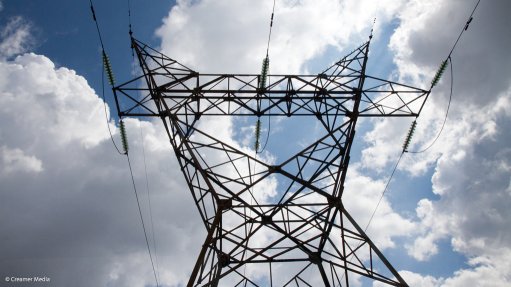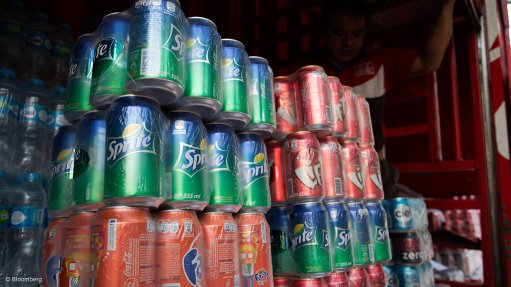Absa PMI rises in May, suggesting another quarterly expansion
The seasonally adjusted Absa Purchasing Managers’ Index (PMI) rose to 57.8 points in May from 56.2 the month before, with four of the five subcomponents remaining well above the neutral 50-point mark.
Only the employment index dipped back into negative terrain for May.
The average level of the PMI recorded in the first two months of the second quarter of this year (57 points) is well above the first quarter’s average (53.8), which suggests that the sector is on track to record another quarterly expansion.
This means that a significant yearly expansion is effectively guaranteed given the extremely low base set in the second quarter of 2020, the PMI states.
The PMI is compiled by the Bureau for Economic Research on behalf of financial services provider Absa.
Of the subcomponents, the new-sales orders index regained April’s loss and rose to 60.5 index points in May, despite respondents noting a dip in export sales, suggesting that it was rather domestic demand that lifted orders.
Potentially, this reflects increased mining-related activity amid elevated South Africa export commodity prices.
On the back of higher orders, business activity increased by a robust eight points to reach 58.8 points in May. Inventories also improved, rising to 61.4 points during the month. However, after a surprising surge in April, the employment index dipped back below the neutral 50-point mark in May.
Despite the decline, the index remains relatively high. However, as cautioned last month, the PMI said the index would have to remain at an elevated level for a sustained period before one can confidently say that job creation in the manufacturing sector is on the mend.
The business activity index more than clawed back April’s losses and rose to a solid 58.8 index points in May. So far in the second quarter, the index has averaged about four points above the first quarter’s reading.
This means that the manufacturing sector could record another quarterly expansion in activity, leading to a significant yearly expansion being effectively guaranteed given the extremely low base set in the second quarter of 2020.
The PMI’s purchasing price index subcomponent nudged down further in May, albeit at 87.1 points, which is still an elevated level for this series.
While the stronger rand exchange rate helps to alleviate some cost pressure, prices of some raw materials and intermediate goods have risen sharply during recent months. Higher electricity and fuel prices, with another diesel price hike from tomorrow, add to the upward pressure to costs, the PMI said.
The recent high readings of the price index correspond to the official producer price index (PPI) data published by Statistics South Africa, where the yearly PPI for final manufactured goods accelerated to 6.7% in April, up from 5.2% in March, and while the PPI for intermediate manufactured goods rose by 11.4% year-on-year.
The diesel price increase for June will put further upward pressure on input costs.
The supplier deliveries index fell to the lowest level in more than a year. Though positively, the PMI said this could mean that supply chains are slowly starting to unclog, products are more readily available, and deliveries of supplies are faster.
“This is because this index is inverted, so longer delivery times actually lift the index and a better delivery performance results in a lower index value. However, despite the recent downward move, the index remains high from a long-term historic perspective,” the PMI explained.
While current business conditions improved in May, purchasing managers turned slightly less optimistic about the trading environment going forward.
The index tracking expected business conditions in six months’ time dipped to 63.5 in May, down from 67.9 in April, which it said could be as a result of concerns over a third wave of Covid-19 infections.
“Even though government has, to date, adopted a softer touch to lockdown restrictions, a renewed virus-induced change in spending behaviour by consumers and firms could still hinder domestic demand,” the PMI said, adding that the ever-present possibility of disruptive load-shedding likely also remains top of mind for many producers.
Comments
Press Office
Announcements
What's On
Subscribe to improve your user experience...
Option 1 (equivalent of R125 a month):
Receive a weekly copy of Creamer Media's Engineering News & Mining Weekly magazine
(print copy for those in South Africa and e-magazine for those outside of South Africa)
Receive daily email newsletters
Access to full search results
Access archive of magazine back copies
Access to Projects in Progress
Access to ONE Research Report of your choice in PDF format
Option 2 (equivalent of R375 a month):
All benefits from Option 1
PLUS
Access to Creamer Media's Research Channel Africa for ALL Research Reports, in PDF format, on various industrial and mining sectors
including Electricity; Water; Energy Transition; Hydrogen; Roads, Rail and Ports; Coal; Gold; Platinum; Battery Metals; etc.
Already a subscriber?
Forgotten your password?
Receive weekly copy of Creamer Media's Engineering News & Mining Weekly magazine (print copy for those in South Africa and e-magazine for those outside of South Africa)
➕
Recieve daily email newsletters
➕
Access to full search results
➕
Access archive of magazine back copies
➕
Access to Projects in Progress
➕
Access to ONE Research Report of your choice in PDF format
RESEARCH CHANNEL AFRICA
R4500 (equivalent of R375 a month)
SUBSCRIBEAll benefits from Option 1
➕
Access to Creamer Media's Research Channel Africa for ALL Research Reports on various industrial and mining sectors, in PDF format, including on:
Electricity
➕
Water
➕
Energy Transition
➕
Hydrogen
➕
Roads, Rail and Ports
➕
Coal
➕
Gold
➕
Platinum
➕
Battery Metals
➕
etc.
Receive all benefits from Option 1 or Option 2 delivered to numerous people at your company
➕
Multiple User names and Passwords for simultaneous log-ins
➕
Intranet integration access to all in your organisation

















